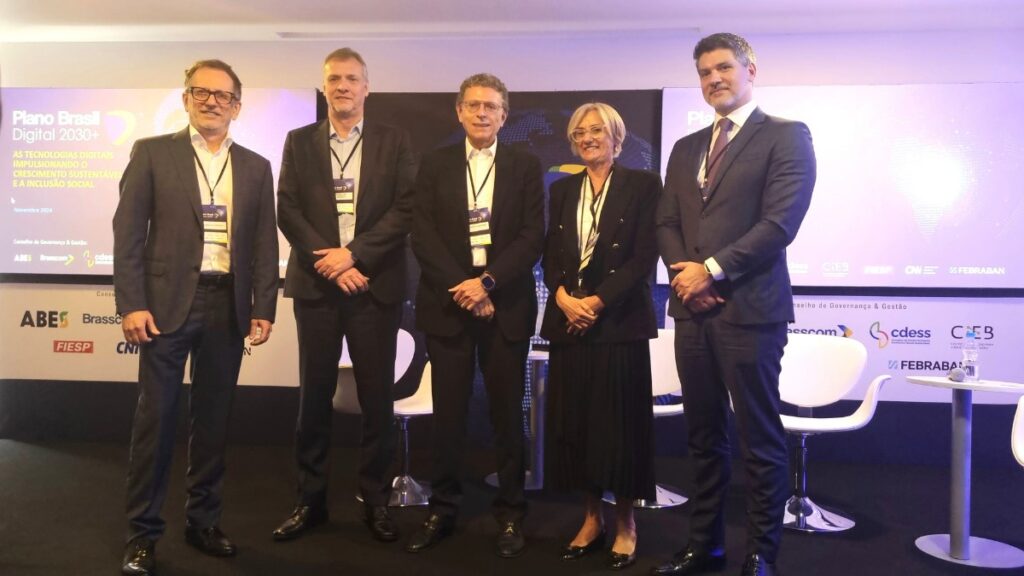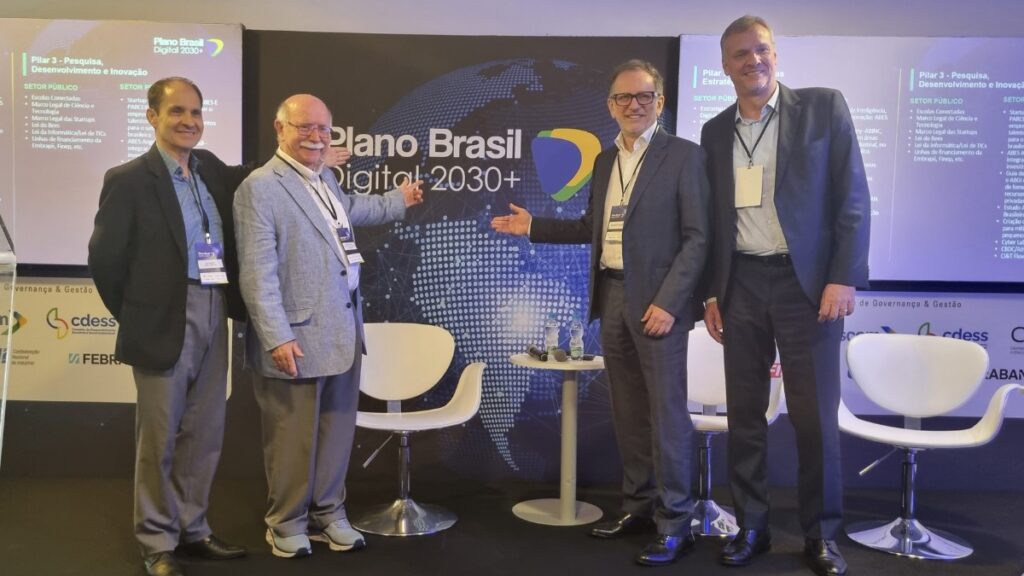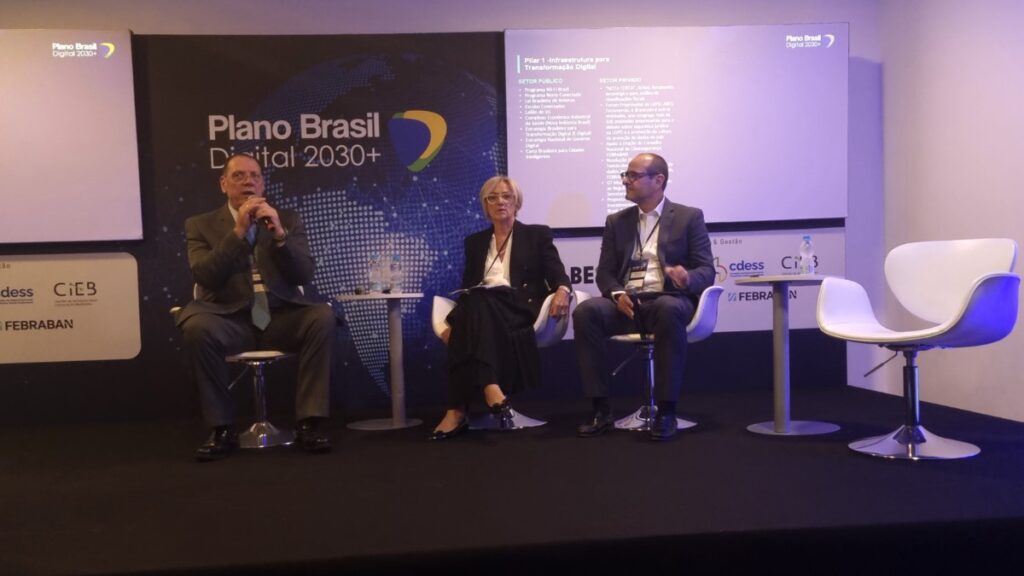In a movement that brings together efforts from several fronts, the Governance and Management Council (CGG) of the Digital Brazil Plan 2030+ was launched at an event held in São Paulo on November 28, consolidating a partnership between the federal government, sectoral entities and civil society. The CGG is currently composed of influential entities such as ABES, Brasscom, CDESS, CIEB, CNI, Febraban and FIESP, but the goal is to further expand this coalition with the membership of new organizations. In addition, companies, associations and NGOs can institutionally support the plan.

The launch event was opened and closed by Laércio Cosentino, Founder and Chairman of the Board of TOTVS and Chairman of the Board of Brasscom. During the event, the need for social mobilization and the importance of putting the plan into practice were highlighted, as highlighted by Rodolfo Fücher, Chairman of the Board of ABES. Fücher also emphasized that governance is essential to generate synergy between existing actions and the evaluation of results.
The Brazil Digital Plan 2030+ is structured around six main pillars: Infrastructure for Digital Transformation; Strategic Technologies; Research, Development and Innovation; Digital Education & Training; Social and Digital Inclusion; and Business Environment. Each of these pillars was addressed in dedicated panels, reflecting on challenges and opportunities in the Brazilian context.

Debates of excellence
One of the main panels, moderated by Laércio Cosentino, was “Panorama of Brazil: challenges and opportunities”, with the participation of leaders such as Renata Mielli (MCTI), Igor Marchesini (Ministry of Finance) and Verônica Deviá (CDESS).
Affonso Nina, CEO of Brasscom, and Glória Guimarães, CDESS Board Member, led the presentation of the plan's ambitions, defined pillars and macro indicators. The practical implementation of the plan was exemplified in the panel on Nova Lima (MG), a city that has adopted the Digital Brazil 2030+ Plan to foster local technological development, with the presence of Tiago Felipe de Almeida, President of the City Council of Nova Lima (MG), and Juliana Ellen de Sales, City Councilwoman.
Other panels highlighted the importance of strategic technologies and the necessary investments in Research, Development & Innovation. Rodolfo Fücher, together with Rodrigo Pastl, from CNI, participated in this debate, moderated by Affonso Nina (Brasscom). Next, the essential infrastructure for digital transformation was discussed by Glória Guimarães and Miguel Mateus (Oliver Wyman), moderated by Atilio Rulli (Huawei).

Another essential topic addressed was Education and Digital Training, in addition to initiatives for social and digital inclusion and the fight against misinformation, with contributions from Priscila Cruz (Todos pela Educação) and Verônica Deviá (CDESS). Finally, the business environment, vital for the country's prosperity and increased competitiveness on the global stage, was explored in a panel with Ivo Mósca (Febraban) and Flavio Unes (FIESP), with mediation by Affonso Nina.
The CGG’s launch of the Plano Brasil Digital 2030+ represents a significant commitment towards Brazil’s digital transformation, establishing fertile ground for innovations, digital inclusion and partnerships that aim to build a More Digital and Less Unequal Brazil.













